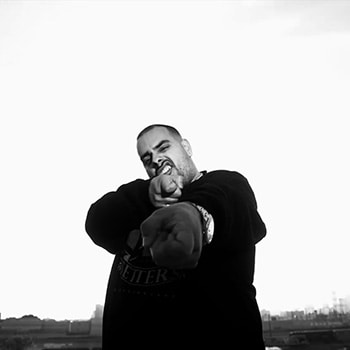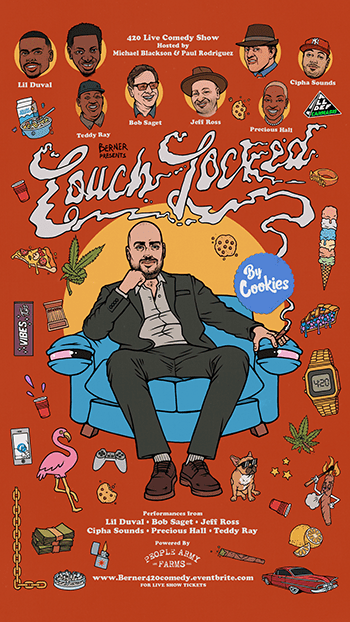Cannabis banking reform deposited another decisive victory in the U.S. House on Monday evening, when bipartisanship took over the floor of the lower chamber.
Cruising to passage by a 321-101 vote, the Secure and Fair Enforcement (SAFE) Banking Act, which aims to bring safe harbor to depository institutions providing financial services to state-legal cannabis businesses, is the first major piece of cannabis legislation to be approved by this Congress. Democrats voted 215-0 in favor of the bill, while Republicans voted 106-101 in favor.
In the last Congress, the lower chamber overwhelmingly passed a standalone version of SAFE Banking in 2019, and then House members passed the measure two more times as part of federal coronavirus relief bills in 2020. But the legislation stalled, in part because former Senate Majority Leader Mitch McConnell, R-Ky., never acted on calendaring it for floor debate in the upper chamber.
RELATED: Senate Follows Suit in Reintroducing SAFE Banking Act
House lawmakers debated the current legislation, House Bill 1996, on the floor Monday afternoon, just hours before the official vote. In his opening remarks as the chief author of the bill, Rep. Ed Perlmutter, D-Colo., said passing the measure is a matter of public safety, accountability and respecting states’ rights.
Eighteen states and the District of Columbia have either implemented or passed adult-use cannabis measures, while the majority of states have medical cannabis programs that depend on related businesses to remain fully functionable.
“Businesses in these states are forced to deal in cash,” Perlmutter said. “And the businesses, their employees and ancillary businesses can’t access the banking system. The fact is, people in states and localities across the country are voting to approve some level of cannabis use, and we need these cannabis businesses and employees to have access to checking accounts, payroll accounts, lines of credit, credit cards and more.
“This will improve transparency and accountability and help law enforcement root out illegal transactions to prevent tax evasion, money laundering and other white-collar crime. But, most importantly, this will reduce the risk of violent crime in our communities. These businesses and their employees become targets for crime, robbery, assault and more by dealing in all cash. And this puts the employees and store owners at risk.”
Last year in Oregon, a string of robberies and burglaries of cannabis businesses culminated in a murder, when Michael Arthur, a dispensary employee in Portland, was shot to death during a robbery on Dec. 14, according to Willamette Week. In 2020, Portland-area cannabis shops reported more than half a million dollars stolen, according to the weekly newspaper.
Helping motor more than $17.5 billion of legal cannabis sales in the U.S. in 2020, there were 515 banks and 169 credit unions providing services to cannabis-related businesses at the end of last year, according to Financial Crimes Enforcement Network’s (FinCEN) quarterly cannabis banking update. But not all cannabis-related businesses have access to those financial institutions, and those financial institutions don’t have guaranteed safe harbor for taking on clients who operate in a sector that is not federally legal without federal retribution.
RELATED: SAFE Banking Act Refiled on Heels of $17.5 Billion in U.S. Cannabis Sales in 2020
Section 3 of the SAFE Banking Act is not only important to cannabis businesses, but also to everyone who might do business with a cannabis-related company, Perlmutter said. That section would protect ancillary businesses, like real estate owners, accountants, electricians and vendors, by clarifying the proceeds from legitimate cannabis businesses are not unlawful under federal laws, he said.
“This proceeds section is the key provision allowing all cannabis-related businesses and their service providers, and landlords, to access the banking system without fear of reprisal,” Perlmutter said.
While Perlmutter has led the charge for cannabis banking reform for eight years, his fellow SAFE Banking Act sponsors in this Congress include Reps. Nydia M. Velázquez, D-N.Y., Steve Stivers, R-Ohio, and Warren Davidson, R-Ohio, whose legislation attracted the support of more than 170 co-sponsors when floor debate took place on April 19.
Stivers said he’s sponsoring the bill because it promotes common sense and safety, but also because it safeguards the assets of companies that merely provide products and services to cannabis businesses.
“I’m an unlikely person to support this bill, because I’m opposed to recreational marijuana,” he said. “But I came to this because a company that’s just outside my district [in the Columbus area] that sells nutrients now finds themselves in the situation where 25 percent of their profits come from selling to legal marijuana businesses, and they’re being threatened—a Fortune 500 company—with losing their bank accounts. We can’t let that happen.”
Piggybacking on those comments, Rep. Dave Joyce, R-Ohio, said, “Regardless of where you stand on the legality of cannabis, I think we can all agree it shouldn’t be that hard to sell a bag of dirt.”
But Joyce’s comments were more geared toward states’ rights.
“The vast majority of states, including my own, have enacted laws that to varying degrees permit their residents to use cannabis,” he said. “However, the federal government has not only infringed on the inherit right of these states to implement those laws, but also stifled medical research, diverted law enforcement resources needed elsewhere and hindered legitimate businesses—businesses that provide vital services to cancer patients, veterans and those seeking opioid alternatives for pain management.”
Because of the federal interference in the space, cannabis companies are not afforded the same access to financial services as every other state-legal business in the U.S., Joyce said.
While SAFE Banking picked up 15 additional Republican votes compared to its previous standalone vote in 2019, the party remained split. Rep. Patrick McHenry, R-N.C., was the main voice in opposition to the legislation during floor debate on Monday. He focused much of his dissent on the fact that cannabis remains illegal at the federal level.
“By enacting this legislation, we’re effectively knee-capping law enforcement and legalizing money laundering. These are concerns that I have that still remain,” he said. “By effectively legalizing money laundering, we’re inserting a new level of risk into our financial system. We’re preventing our legal entities from doing their jobs. We’re encouraging bad actors and placing our financial institutions at risk. Rather than dealing with the issues of cannabis and the question of its federal legalization, we’re dealing with a component of the challenge, which is the banking of it.”
Rep. Earl Blumenauer, D-Ore., rebutted and said he believes cash-only enterprises present an invitation for money laundering without SAFE Banking in place. With the cannabis industry approaching $20 billion of revenue a year, those enterprises also remain sitting ducks for violent crimes, he said.
Stivers said SAFE Banking encourages safety because money that’s in a bank account can be frozen and can be tracked. The bill also expands suspicious activity reports (SARs)—a compliance step financial institutions servicing cannabis-businesses must take to help ensure they’re performing their due diligence on clients to help the FinCEN prevent money laundering, he said.
“The final thing is, this bill includes provisions to stop Operation Choke Point that Republicans couldn’t even get passed when we had the presidency, the Senate and the House,” Stivers said. “And we got that negotiated into this bill. It helps in a big way to make sure that there’s not an Operation Choke Point in the future, so nobody can choke off legal businesses from their bank accounts and from access to the payment system. That’s a big deal.”
Operation Choke Point was a 2013 initiative where the U.S. Department of Justice targeted banks that service a broad range of what it considered questionable financial ventures, including online payday lenders, firearm dealers and other companies believed to be at high risk for fraud and money laundering, according to the Wall Street Journal. The operation ended in 2017, and the Federal Deposit Insurance Corporation settled multiple lawsuits by promising to Congress additional training for its examiners.
Perlmutter said SAFE Banking attracted about 50 endorsements from various national associations, such as the American Bankers Association and the National Association of State Treasurers, among other bankers, credit unions, insurance agencies, cannabis industry stakeholders, real estate owners and law enforcement agencies, not to mention 21 governors.
“They know this is a public safety matter,” he said. “We really need to address it. We have been working on it for some time. We need to get this to the Senate. They need to take whatever tack they want to take, but we’ve got to make our communities safer, these businesses safer.”


